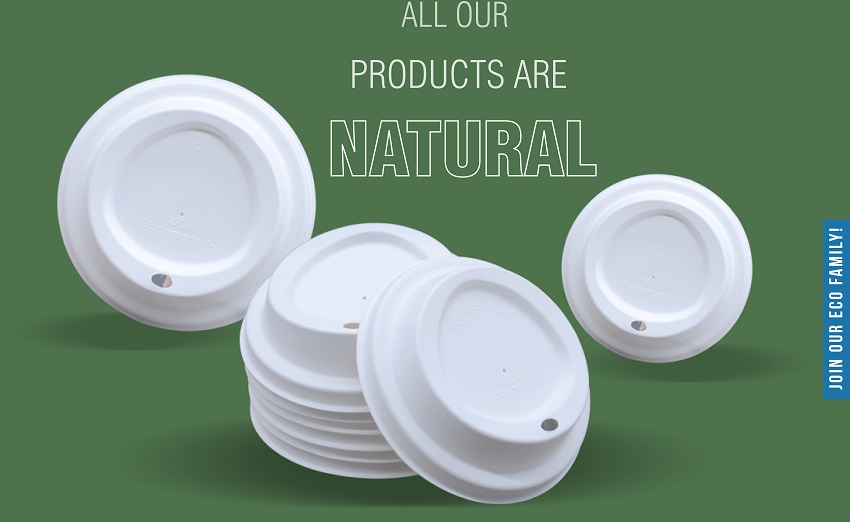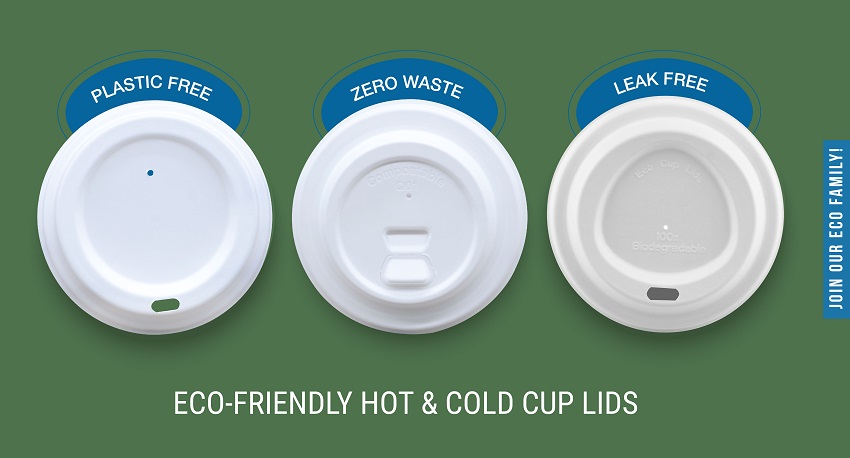What is a compostable lid? Why is compostable better than biodegradable ?
A compostable lid is a lid that will break down into CO2, water and nutrient-rich compost within a specific time frame under composting conditions.
1. What is compostable?
If a material is compostable, it means that under composting conditions (temperature, humidity, oxygen and the presence of micro-organisms) it will break down into CO2, water and nutrient-rich compost within a specific time frame.
2. Why is compostable better than biodegradable?

If your bag is labelled ‘compostable’, you can be sure that it will break down in composting conditions within a maximum of 180 days. This is similar to the way food and garden waste is broken down by microorganisms, leaving a non-toxic residue.
3. Why is compostability important?
Flexible plastic packaging waste is often so contaminated with food waste that it cannot be recycled and ends up in incineration or landfill. This is why compostable packaging was introduced. Not only does it prevent landfill and incineration, but the resulting compost returns organic matter to the soil. If packaging waste can be integrated into organic waste systems and used as compost for the next generation of plants (nutrient-rich soil), then the waste is recyclable and usable for the market and is not only no longer “waste” but also has considerable economic value.

4. What is the difference between a domestic and an industrial or commercial compost container?
Domestic composting containers have a small capacity and are usually exposed to ambient temperatures. In this case, the compostable material will decompose within 180 days.
Commercial or industrial composting containers have a much larger capacity and therefore more heat is generated in industrial composting containers (45-60°C), which accelerates biodegradation. The same compostable material will usually decompose in a commercial compost pile within 90 days, which is about half the time of a domestic compost pile.
5. What is biodegradable ?
The term “biodegradable” represents a process, but there is no certainty as to the conditions or timeframe within which the product will break down and degrade. “The problem with the term ‘biodegradable’ is that it is a vague term with no clear time or conditions. As a result, in practice many things that would not be ‘biodegradable’ can be labelled as ‘biodegradable’. Technically speaking, all naturally occurring organic compounds can be biodegraded under the right conditions and will break down over a period of time, but it may take hundreds or thousands of years. For example, wood is biodegradable, but the wood structure does not decompose and can be passed down through generations.
To avoid confusion among consumers and industrial composters, regulators around the world have begun to restrict or ban the use of ‘biodegradable’ as a way of describing packaging products, instead promoting the use of the term ‘compostable’, which better describes The term ‘compostable’ better describes the expected lifetime of the packaging and when it will degrade.

